The Cambridge Theological Federation
The Cambridge Theological Federation (CTF) is an ecumenical partnership of twelve institutions, with over 300 students from 30 different countries, engaged in undergraduate and postgraduate degree level education, and in research.
During your time in Cambridge, you will become part of the wider CTF community. There will be opportunities to participate in worship with the other CTF students and join in other CTF social events and academic seminars.
The Faraday Institute for Science and Religion
The Faraday Institute has a Christian ethos but encourages engagement with a wide diversity of opinions concerning interactions between science and religion. Founded in 2006, as part of St Edmund’s College, The Institute became an independent charitable organisation in 2018 and is a Member of the Cambridge Theological Federation.
The mission of The Faraday Institute is to shed new light on life’s big questions through academically rigorous research in the field of science and religion; to provide life-changing resources for those with interests in science and faith through research dissemination, education and training; and, to catalyse a change in attitude towards science and faith, through outreach to schools, colleges, the scientific community, religious institutions and the general public. The Faraday Institute has a vision to make the very best of academic scholarship available as widely as possible.
The Faraday Institute Tutorial Programme Faculty
Programme Director: Dr Pui Him Ip
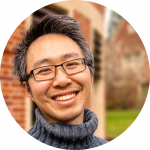 Dr Pui Him Ip is Director of Tutorial Programme and Research Associate at The Faraday Institute, an affiliated Lecturer in the Faculty of Divinity at the University of Cambridge and a visiting Lecturer in Patristics at King’s College London. Before joining The Faraday Institute, he was Departmental Lecturer in Patristics at the University of Oxford and Tutor in Theology at Christ Church, Oxford. A specialist in early Christian thought, Dr Ip earned his PhD in Theology at the University of Cambridge, holds an MA (with distinction) in Philosophy and Theology from Heythrop College, University of London and a MSci (first class) in Theoretical Physics from Imperial College London. His current research focuses on natural philosophy and moral formation in early Christian thought.
Dr Pui Him Ip is Director of Tutorial Programme and Research Associate at The Faraday Institute, an affiliated Lecturer in the Faculty of Divinity at the University of Cambridge and a visiting Lecturer in Patristics at King’s College London. Before joining The Faraday Institute, he was Departmental Lecturer in Patristics at the University of Oxford and Tutor in Theology at Christ Church, Oxford. A specialist in early Christian thought, Dr Ip earned his PhD in Theology at the University of Cambridge, holds an MA (with distinction) in Philosophy and Theology from Heythrop College, University of London and a MSci (first class) in Theoretical Physics from Imperial College London. His current research focuses on natural philosophy and moral formation in early Christian thought.
Director of Studies: Dr Pavlína Kašparová
 Dr Pavlína Kašparová is the Director of Studies at The Faraday Institute. Alongside this role, she is the Director of Studies at The Cambridge Centre for Christianity Worldwide and a Research Associate at The Margaret Beaufort Institute of Theology where she obtained her PhD in Fine Art and Theology (Anglia Ruskin University award). Before her PhD, Dr Kašparová completed two MA degrees in Catholic Theology and Art History (with BA in Design) at the Palacky University in Olomouc and University Hradec Králové, the Czech Republic. Her research interest is in applying art practice for theological scholarship. As a practising artist, she combines practice-based research methods and theological reflection to observe and test the human’s ability to understand, express and share knowledge outside of the linguistic frameworks.
Dr Pavlína Kašparová is the Director of Studies at The Faraday Institute. Alongside this role, she is the Director of Studies at The Cambridge Centre for Christianity Worldwide and a Research Associate at The Margaret Beaufort Institute of Theology where she obtained her PhD in Fine Art and Theology (Anglia Ruskin University award). Before her PhD, Dr Kašparová completed two MA degrees in Catholic Theology and Art History (with BA in Design) at the Palacky University in Olomouc and University Hradec Králové, the Czech Republic. Her research interest is in applying art practice for theological scholarship. As a practising artist, she combines practice-based research methods and theological reflection to observe and test the human’s ability to understand, express and share knowledge outside of the linguistic frameworks.
Assistant Tutorial Programme Director: Ms Melissa McCreery
 Melissa McCreery is the Assistant Tutorial Programme Director. She is currently completing her PhD in Education at Cambridge University, where she studies the influence of institutional culture in widening participation at highly selective universities. Further to her doctoral work, Melissa has worked on a range of research projects including Close the Gap, a joint project between Cambridge & Oxford Universities aimed at bringing about meaningful change in doctoral candidate-selection systems to create a more inclusive environment, as well as the Pembroke College Higher Education Debates, aimed at discussing longstanding questions facing higher education today. Prior to pursuing her PhD, Melissa completed her M.Ed. at the Harvard University Graduate School of Education. In addition to her research and academic career, she has worked for more than 15 years at a range of U.S. colleges and universities, specifically in student recruitment policy, curriculum development, and donor engagement.
Melissa McCreery is the Assistant Tutorial Programme Director. She is currently completing her PhD in Education at Cambridge University, where she studies the influence of institutional culture in widening participation at highly selective universities. Further to her doctoral work, Melissa has worked on a range of research projects including Close the Gap, a joint project between Cambridge & Oxford Universities aimed at bringing about meaningful change in doctoral candidate-selection systems to create a more inclusive environment, as well as the Pembroke College Higher Education Debates, aimed at discussing longstanding questions facing higher education today. Prior to pursuing her PhD, Melissa completed her M.Ed. at the Harvard University Graduate School of Education. In addition to her research and academic career, she has worked for more than 15 years at a range of U.S. colleges and universities, specifically in student recruitment policy, curriculum development, and donor engagement.
Tutorial Course Co-ordinator: Ms Felicity Parker
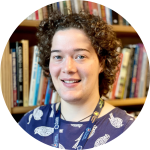 Felicity Parker is both Content and Communications Officer and Tutorial Course Co-ordinator at the Faraday Institute. Felicity originally read Classics at the University of Cambridge, specialising in linguistics, textual criticism and Ancient Greek mathematics, before transferring to History and Philosophy of Science for an MSci. Her principal academic interests are ancient and early modern mathematics and natural philosophy, in particular the mathematisation of shipbuilding in the early modern period. Outside of academia, Felicity enjoys spending time outdoors, either gardening or messing about in boats; when the weather is too inclement for either, she turns her hand to any number of crafts including crochet and dressmaking.
Felicity Parker is both Content and Communications Officer and Tutorial Course Co-ordinator at the Faraday Institute. Felicity originally read Classics at the University of Cambridge, specialising in linguistics, textual criticism and Ancient Greek mathematics, before transferring to History and Philosophy of Science for an MSci. Her principal academic interests are ancient and early modern mathematics and natural philosophy, in particular the mathematisation of shipbuilding in the early modern period. Outside of academia, Felicity enjoys spending time outdoors, either gardening or messing about in boats; when the weather is too inclement for either, she turns her hand to any number of crafts including crochet and dressmaking.
Faraday Tutors
Dr Roger Abbott, Senior Research Associate, The Faraday Institute
Dr Denis Alexander, Emeritus Founding Director, The Faraday Institute; previously Chairman of the Molecular Immunology Programme and Head of the Laboratory of Lymphocyte Signalling and Development, The Babraham Institute, Cambridge.
Dr Ruth Bancewicz, Church Engagement Director, The Faraday Institute
Dr Mike Brownnut, Associate Course Director, The Faraday Institute
Graham Budd, Director, The Faraday Institute; previously President & COO, Arm
Prof. Keith Fox, Research Director, The Faraday Institute; Emeritus Professor of Biochemistry, University of Southampton
Revd Dr Rodney Holder, Former Course Director, The Faraday Institute; Fellow Commoner, St Edmund’s College, Cambridge
Chris Oldfield, Research Associate, The Faraday Institute
Prof. Sarah Perrett OBE FRSC, Associate Director & Course Director, The Faraday Institute; Professor, Institute of Biophysics, Chinese Academy of Sciences
Prof. Bob White FRS, Emeritus Founding Director, The Faraday Institute; Emeritus Professor of Geophysics, University of Cambridge

Get in Touch
To find out more, contact us at tutorial@faraday.cam.ac.uk.





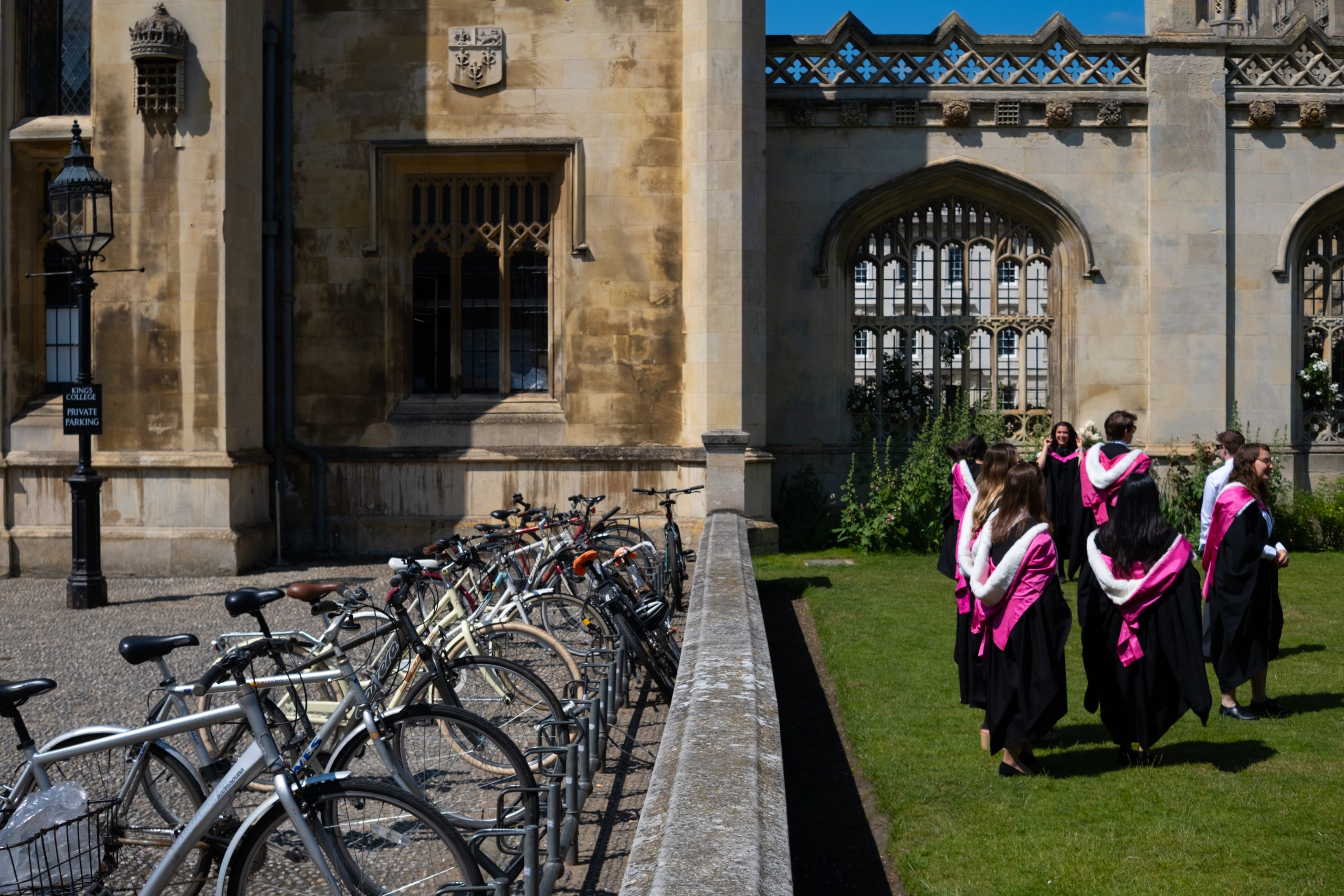
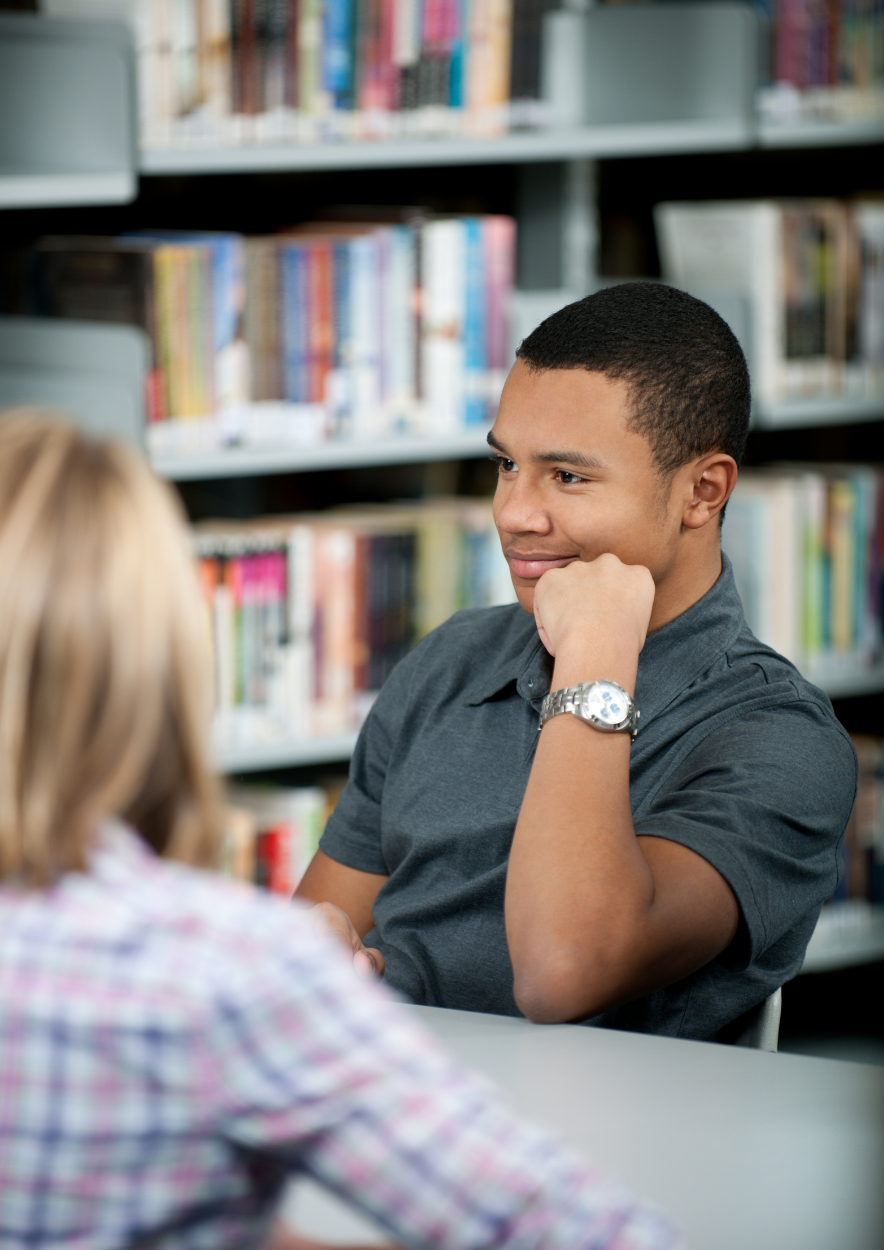

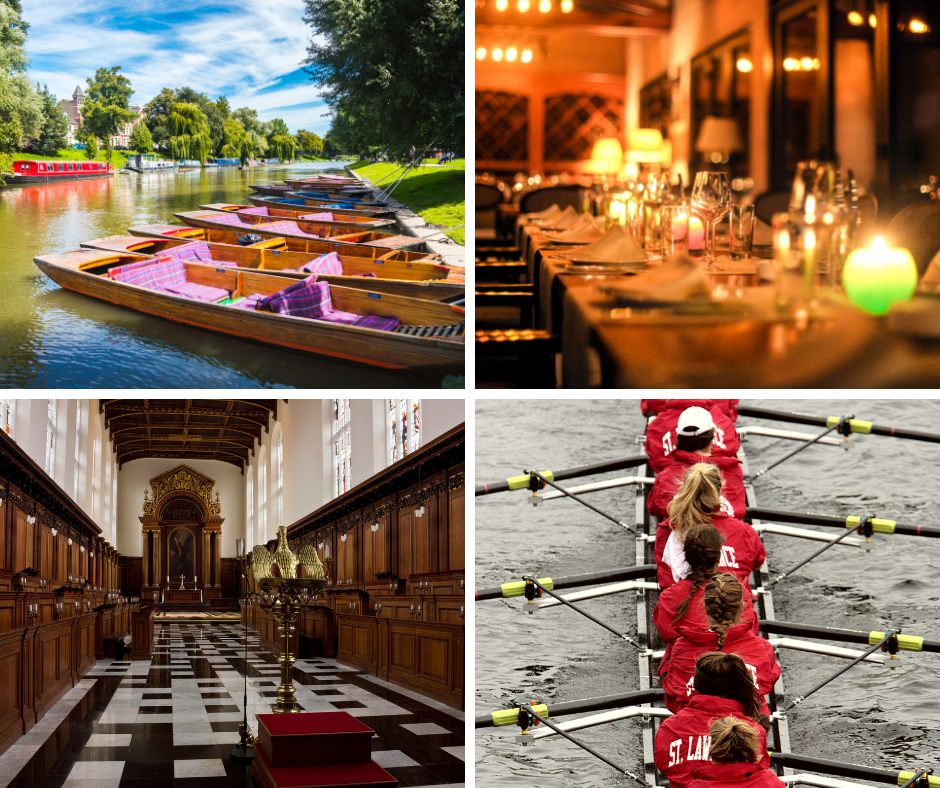
 Dr Pui Him Ip is Director of Tutorial Programme and Research Associate at The Faraday Institute, an affiliated Lecturer in the Faculty of Divinity at the University of Cambridge and a visiting Lecturer in Patristics at King’s College London. Before joining The Faraday Institute, he was Departmental Lecturer in Patristics at the University of Oxford and Tutor in Theology at Christ Church, Oxford. A specialist in early Christian thought, Dr Ip earned his PhD in Theology at the University of Cambridge, holds an MA (with distinction) in Philosophy and Theology from Heythrop College, University of London and a MSci (first class) in Theoretical Physics from Imperial College London. His current research focuses on natural philosophy and moral formation in early Christian thought.
Dr Pui Him Ip is Director of Tutorial Programme and Research Associate at The Faraday Institute, an affiliated Lecturer in the Faculty of Divinity at the University of Cambridge and a visiting Lecturer in Patristics at King’s College London. Before joining The Faraday Institute, he was Departmental Lecturer in Patristics at the University of Oxford and Tutor in Theology at Christ Church, Oxford. A specialist in early Christian thought, Dr Ip earned his PhD in Theology at the University of Cambridge, holds an MA (with distinction) in Philosophy and Theology from Heythrop College, University of London and a MSci (first class) in Theoretical Physics from Imperial College London. His current research focuses on natural philosophy and moral formation in early Christian thought. Dr Pavlína Kašparová is the Director of Studies at The Faraday Institute. Alongside this role, she is the Director of Studies at The Cambridge Centre for Christianity Worldwide and a Research Associate at The Margaret Beaufort Institute of Theology where she obtained her PhD in Fine Art and Theology (Anglia Ruskin University award). Before her PhD, Dr Kašparová completed two MA degrees in Catholic Theology and Art History (with BA in Design) at the Palacky University in Olomouc and University Hradec Králové, the Czech Republic. Her research interest is in applying art practice for theological scholarship. As a practising artist, she combines practice-based research methods and theological reflection to observe and test the human’s ability to understand, express and share knowledge outside of the linguistic frameworks.
Dr Pavlína Kašparová is the Director of Studies at The Faraday Institute. Alongside this role, she is the Director of Studies at The Cambridge Centre for Christianity Worldwide and a Research Associate at The Margaret Beaufort Institute of Theology where she obtained her PhD in Fine Art and Theology (Anglia Ruskin University award). Before her PhD, Dr Kašparová completed two MA degrees in Catholic Theology and Art History (with BA in Design) at the Palacky University in Olomouc and University Hradec Králové, the Czech Republic. Her research interest is in applying art practice for theological scholarship. As a practising artist, she combines practice-based research methods and theological reflection to observe and test the human’s ability to understand, express and share knowledge outside of the linguistic frameworks. Melissa McCreery is the Assistant Tutorial Programme Director. She is currently completing her PhD in Education at Cambridge University, where she studies the influence of institutional culture in widening participation at highly selective universities. Further to her doctoral work, Melissa has worked on a range of research projects including Close the Gap, a joint project between Cambridge & Oxford Universities aimed at bringing about meaningful change in doctoral candidate-selection systems to create a more inclusive environment, as well as the Pembroke College Higher Education Debates, aimed at discussing longstanding questions facing higher education today. Prior to pursuing her PhD, Melissa completed her M.Ed. at the Harvard University Graduate School of Education. In addition to her research and academic career, she has worked for more than 15 years at a range of U.S. colleges and universities, specifically in student recruitment policy, curriculum development, and donor engagement.
Melissa McCreery is the Assistant Tutorial Programme Director. She is currently completing her PhD in Education at Cambridge University, where she studies the influence of institutional culture in widening participation at highly selective universities. Further to her doctoral work, Melissa has worked on a range of research projects including Close the Gap, a joint project between Cambridge & Oxford Universities aimed at bringing about meaningful change in doctoral candidate-selection systems to create a more inclusive environment, as well as the Pembroke College Higher Education Debates, aimed at discussing longstanding questions facing higher education today. Prior to pursuing her PhD, Melissa completed her M.Ed. at the Harvard University Graduate School of Education. In addition to her research and academic career, she has worked for more than 15 years at a range of U.S. colleges and universities, specifically in student recruitment policy, curriculum development, and donor engagement. Felicity Parker is both Content and Communications Officer and Tutorial Course Co-ordinator at the Faraday Institute. Felicity originally read Classics at the University of Cambridge, specialising in linguistics, textual criticism and Ancient Greek mathematics, before transferring to History and Philosophy of Science for an MSci. Her principal academic interests are ancient and early modern mathematics and natural philosophy, in particular the mathematisation of shipbuilding in the early modern period. Outside of academia, Felicity enjoys spending time outdoors, either gardening or messing about in boats; when the weather is too inclement for either, she turns her hand to any number of crafts including crochet and dressmaking.
Felicity Parker is both Content and Communications Officer and Tutorial Course Co-ordinator at the Faraday Institute. Felicity originally read Classics at the University of Cambridge, specialising in linguistics, textual criticism and Ancient Greek mathematics, before transferring to History and Philosophy of Science for an MSci. Her principal academic interests are ancient and early modern mathematics and natural philosophy, in particular the mathematisation of shipbuilding in the early modern period. Outside of academia, Felicity enjoys spending time outdoors, either gardening or messing about in boats; when the weather is too inclement for either, she turns her hand to any number of crafts including crochet and dressmaking.
